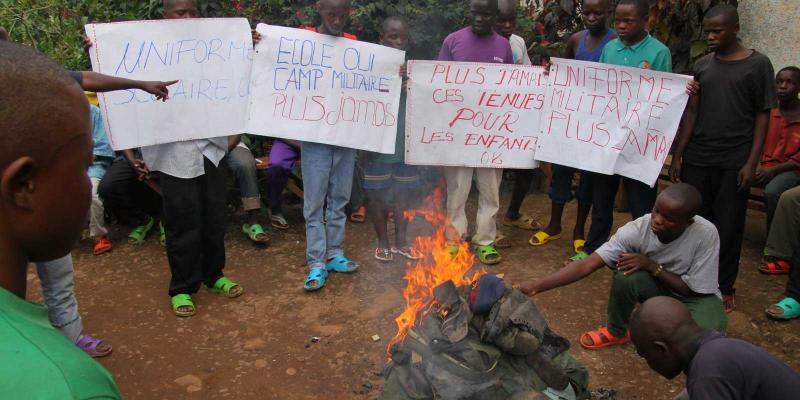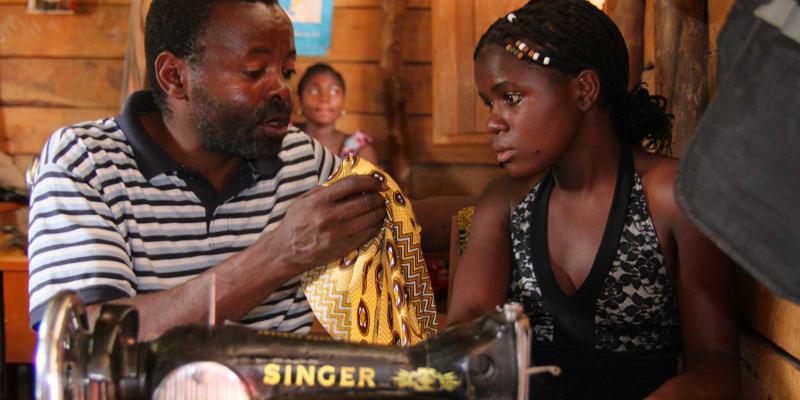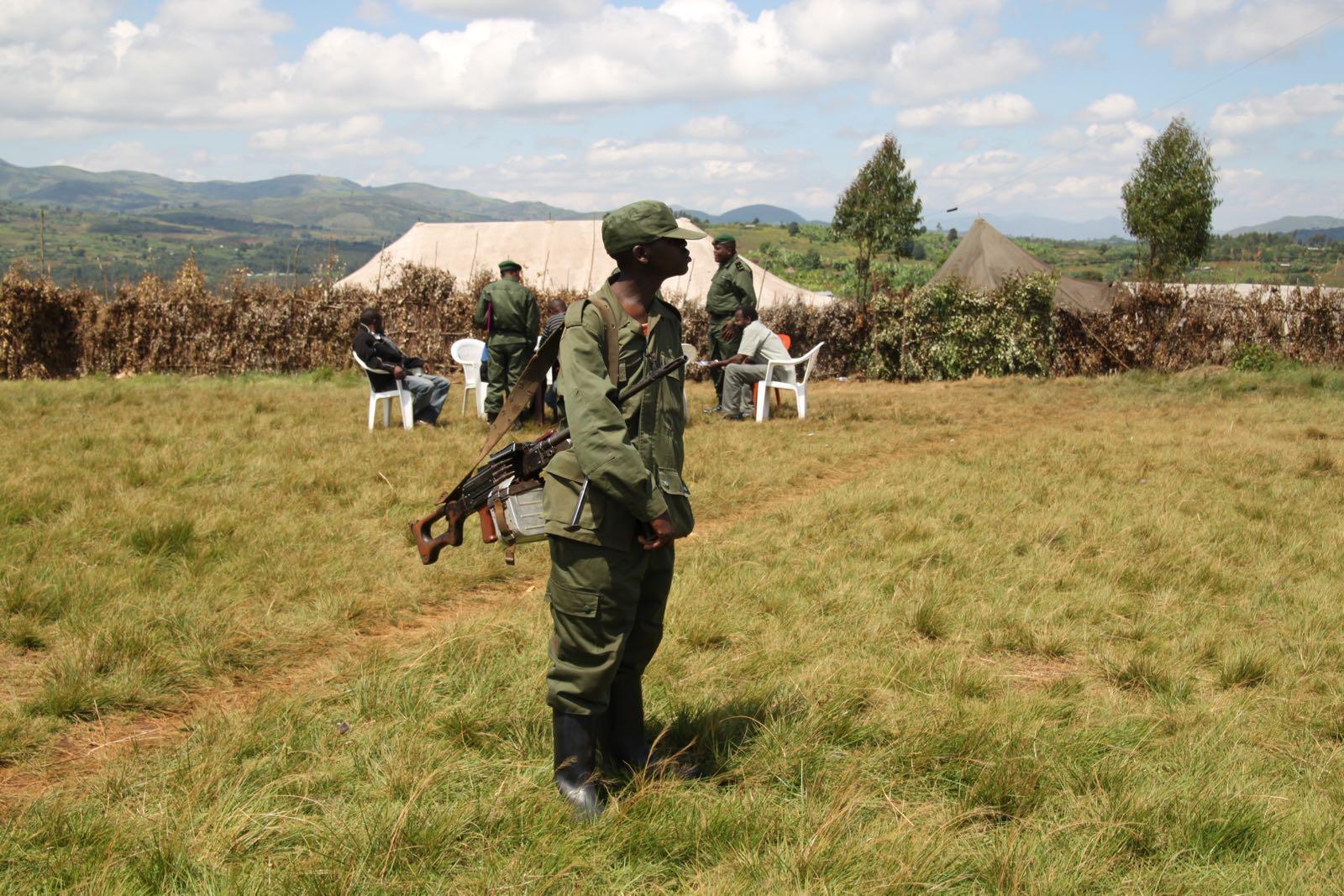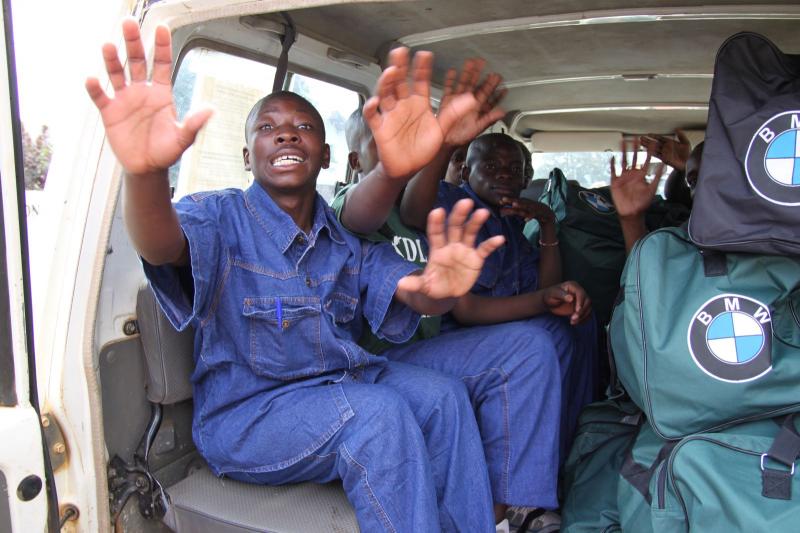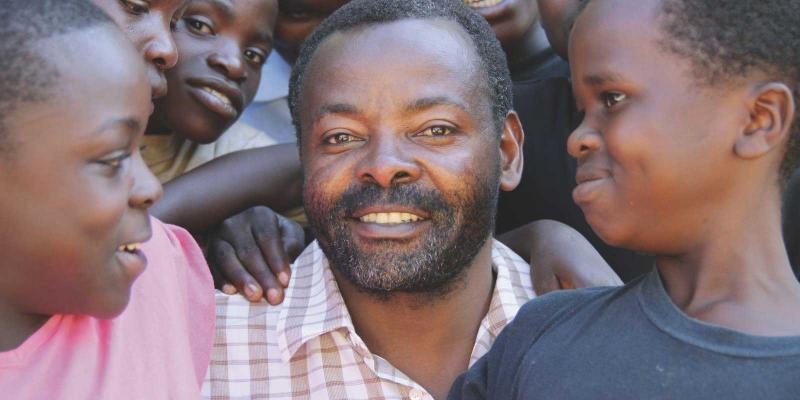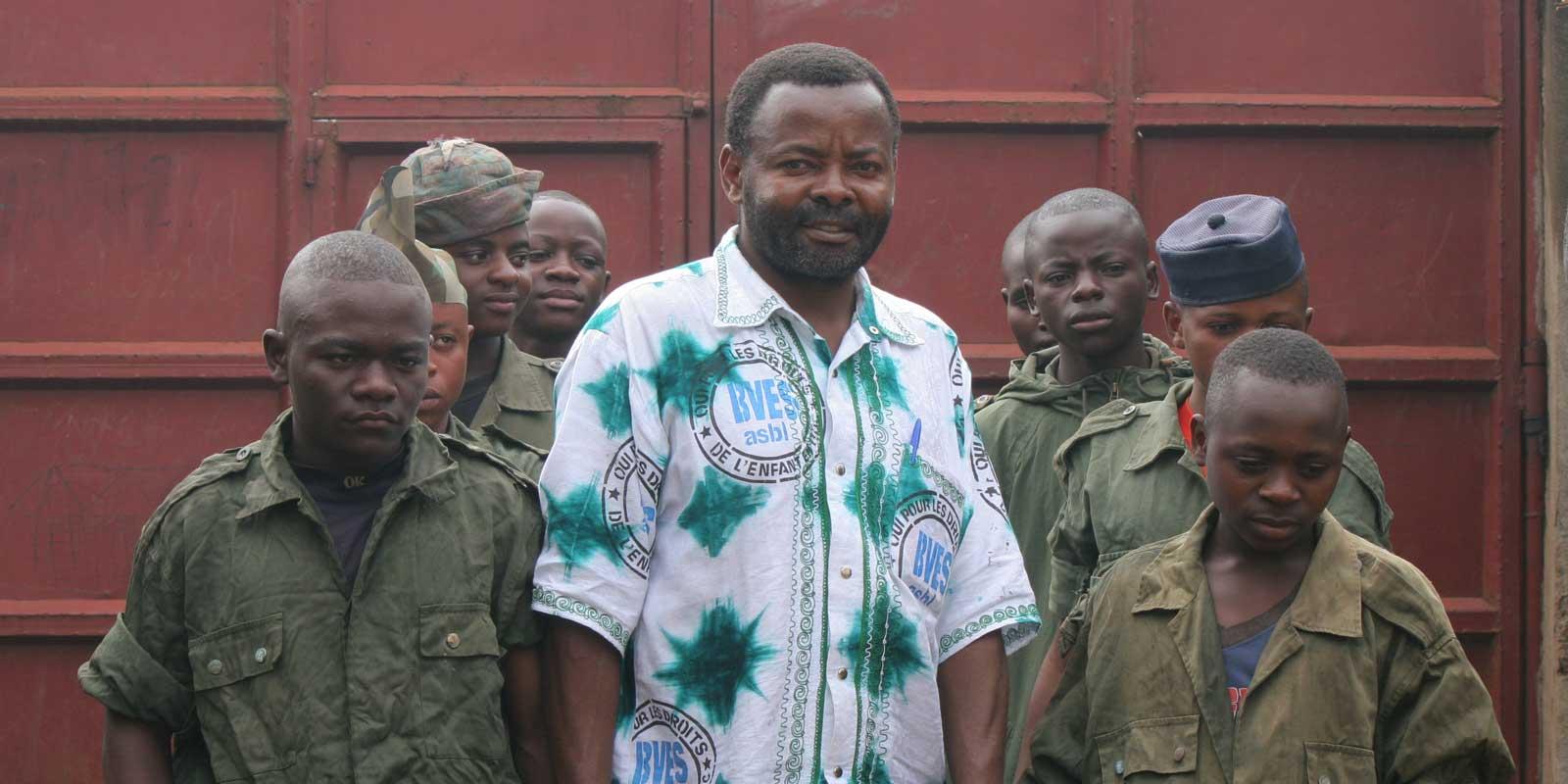
“You’re going to die tonight. Eat your last meal!” Murhabazi read the short message that beeped on his mobile phone. He was in an important meeting with the UN, discussing children who were being forced to become soldiers in the Democratic Republic of the Congo. Had someone in the room sent him the death threat?
Murhabazi has made many enemies during his struggle to help the thousands of children being exploited and tortured in war-torn DR Congo.
“I’m prepared to die in the fight for children’s rights, every day,” says Murhabazi Namegabe.
Murhabazi hadn’t even been born when he received his first death threat. War was raging in Bukavu in eastern Congo in 1964, and his pregnant mother Julienne fled along the narrow lanes. A soldier pressed the barrel of his rifle against her pregnant belly, but one of the leaders shouted: “Don't kill her! Let her go!”
Two weeks later Murhabazi was born. In the language Mashi his name means both ‘One who was born in war’ and ‘One who helps others’.
“My mother always says that I was predestined to devote my life to protecting vulnerable people.”
Everyone should have food!
Murhabazi grew up in one of the poorest districts of Bukavu. But since his father had a job, the family always had food and the children could go to school.“A lot of my friends were always hungry and couldn't afford to go to school. I thought that was unfair. Every day, hungry children gathered outside our house when we were about to eat. I thought that the children should be allowed to sit with us and eat and told my mother that I refused to eat as long as things remained as they were!”
Murhabazi talked to his school friends and together they began to campaign on behalf of the hungry children in the district. Every afternoon they went around singing songs about how adults needed to take care of all children. The children explained that they planned to go on a hunger strike until the poorest children in the neighbourhood were welcome at their table.
“Soon there were over seventy of us demonstrating every day after school!”
In the end the hungry children got to eat dinner together with families that had enough food to share!
The rights of the child
The children carried on demonstrating, this time to encourage parents and teachers to stop hitting children, and for the right of every child to go to school. The older Murhabazi became, the more problems he saw for children in DR Congo. He knew that children needed adults to take up their cause, and that he himself needed more knowledge if he was to be able to help children properly. So he studied child development and health at university.On 20 November 1989 Murhabazi listened to the news on the radio. The newsreader announced that the UN had adopted the Convention on the Rights of the Child. The Convention stated that all children around the world were entitled to a good life. The newsreader also said that every country that signed up to the Convention would have to consider children’s best interests in all decisions.
“I was so happy. I organised a meeting at my house where we decided that we would do everything in our power to get the government of DR Congo to sign up to the Convention on the Rights of the Child.”
BVES
Murhabazi’s group called itself BVES (Bureau pour le Volontariat au Service de l’Enfance et de la Santé, Bureau for Volunteer Service for Children and Health). They started examining the situation faced by children in DR Congo.“We often hiked for several days through the rainforest to reach remote villages. At night we slept in the trees to avoid leopards and other dangerous animals.” Murhabazi and BVES started to compile facts about the lives of children in the villages of DR Congo. Terrible facts.
“When we reported our results to the government, they weren’t happy at all. If anyone said anything negative about the country, like that children were suffering here, it was seen as an attack on the government. If we didn’t stop, we would end up in prison.”
Street children
Murhabazi started speaking on the radio once a week, so that everyone would hear about the Convention on the Rights of the Child and what life was like for children in DR Congo. Every time, he repeated his demand that the government sign up to the Convention.“The streets of Bukavu were filled with children who had no one to look after them. Their parents were either poor or had died of AIDS. Many people referred to these children as ‘dogs’, but we said that they needed protection and love. In 1994 we opened our first home for street children.”
Child soldiers
“We thought we’d seen the worst, but then the war started and life for all children here became pure hell,” says Murhabazi.In 1996, Bukavu was invaded by various Congolese rebel armies with the support of Rwanda. Children were directly targeted during the war that followed.
“The fighters destroyed our three homes for refugee children. I had managed to hide the children in time, but my first colleague and friend was killed.” All the groups that were fighting, including DR Congo’s army, were kidnapping boys and forcing them to become soldiers, and abducting girls to use them as sex slaves.
“Of course I had experience of looking after tough boys who had lived on the streets before, but child soldiers were a completely different matter. Young boys aged about ten who were on drugs, wearing uniforms and carrying huge weapons. They had been completely destroyed by adults. I wanted to do everything I could to save them,” explains Murhabazi.
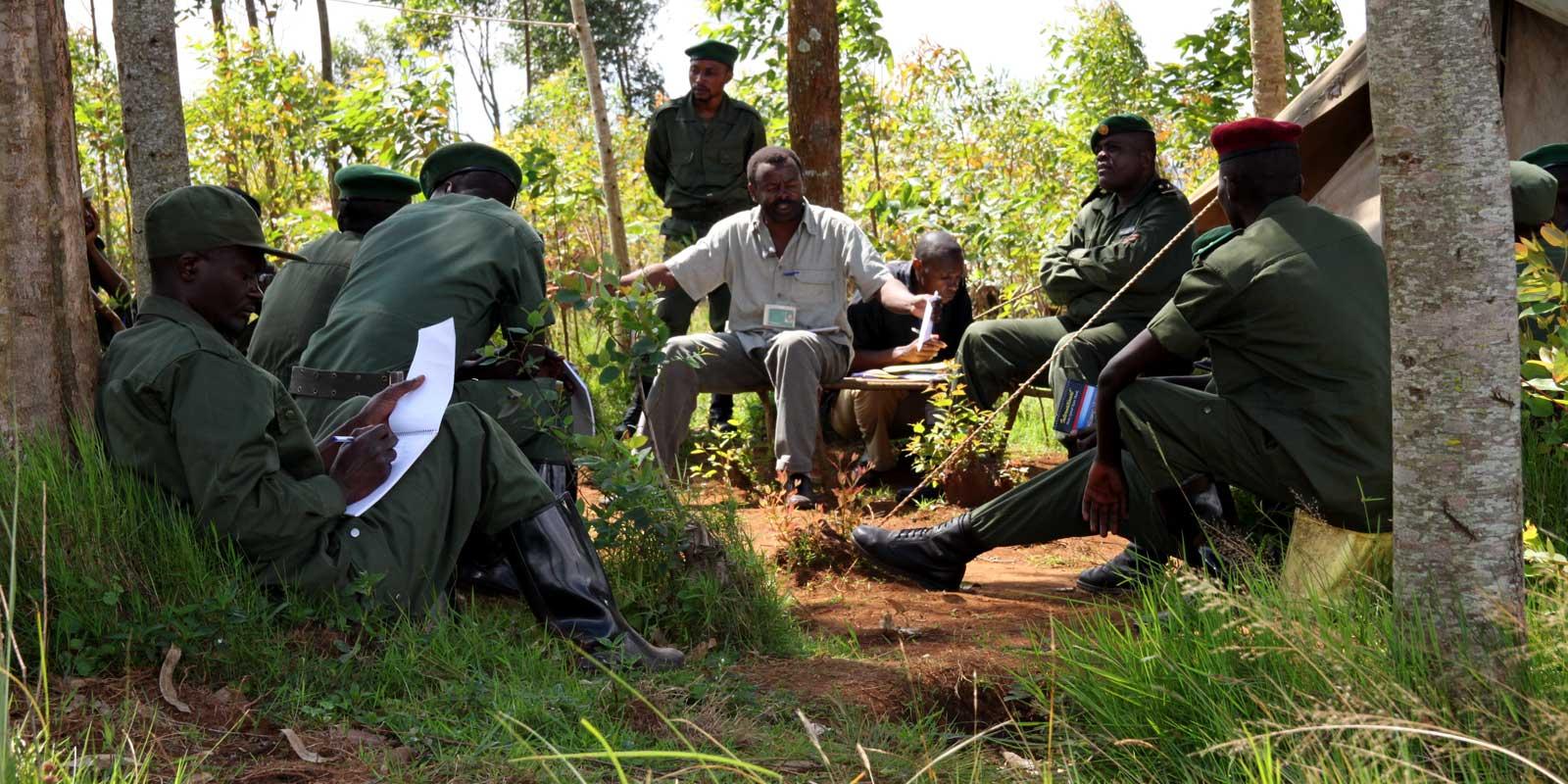
Difficult to rescue children
“Negotiating with armed groups is not easy. They threaten to kill us when we ask them to release the children. Then it’s difficult to handle the children because they have been so exploited and damaged by adults. And in the end it can be difficult to get their families, neighbours, villages and schools to accept the children when it’s time for them to return to their homes,” explains Murhabazi.First rescue mission
“One day I met a group of mothers in utter despair, who told me that 67 children had been abducted from their village.”Murhabazi set off with a bag packed with a bunch of bananas and books about children’s rights. Alone.
“I took a motorbike taxi without saying exactly where we were going. If I had, I would never have been given a ride!” When Murhabazi arrived at the rebel army’s camp, he was arrested and taken to the leader, who asked what he wanted.
“I said that in our culture adults always take care of children, but that I’d heard that this army had stolen children and forced them to fight instead of going to school. I said that I was there to take the children back to their parents again. The leader was mad with rage! He ordered his soldiers to tear up my books about children’s rights. Then the beating started.”
Children released
They explained to Murhabazi that he had two choices: to be a soldier in their army, or be executed. The next morning as they were preparing to kill him, one of the leaders stopped the proceedings. He had been too drunk to recognise Murhabazi the day before.Now he said:
“He’s no enemy soldier. I know that this man helps street children in Bukavu.”
“The children cried and shouted out that I should help them too. I told the soldiers that they had to release the children. If their plan was to bring down the government and create a better country, then using children as soldiers was not the way to do it. The children had to go back to school! Who else would be able to build the new and better country that they wanted?”
There was a heated discussion between the leaders. Some agreed with Murhabazi. He managed to convince them in the end and the soldiers let the children leave the forest. The first 67 rescued child soldiers ran to freedom!
Prepared to die
That was 23 years ago. Murhabazi has freed 34,430 child soldiers. 2,017 of them are girls who were forced to be soldiers or sex slaves. 481,500 children who have suffered because of the war – girls who have been subjected to sexual assault, unaccompanied refugee children, child soldiers and street children – have been given a better life, thanks to Murhabazi and BVES. BVES has 70 homes, schools and centres where they give children a home, healthcare, therapy, the opportunity to go to school, security and love. Most of the children are reunited with their families.Murhabazi has many enemies. He gets threatening telephone calls and text messages, and he rarely sleeps in the same place two nights in a row. Eight of his colleagues have been killed.
“There are a lot of soldiers, politicians and businessmen, both in DR Congo and in other countries, who are making a great deal of money out of the war. The more unrest there is in the country, the cheaper it is for them to rob us of our natural resources, such as gold and diamonds. In the hunt for riches, everyone, even the armies of other countries, uses armed groups and child soldiers, and everyone rapes girls. When I fight against this, I make a lot of powerful enemies because I’m disrupting their business activities. They are also frightened of being reported to the UN International Criminal Court (ICC) in The Hague.”
“Nothing will stop me as long as I know that there are children in an armed group. Not death threats or accidents. When it turned out that it was soldiers who had sent the death threat during the UN meeting, everyone wanted me to stop and leave the country. But how could I leave? I can’t let the children down. Every day I’m prepared to die for them.”
Related stories
Långgatan 13, 647 30, Mariefred, Sweden
Phone: +46-159-129 00 • info@worldschildrensprize.org
© 2020 World’s Children’s Prize Foundation. All rights reserved. WORLD'S CHILDREN'S PRIZE®, the Foundation's logo, WORLD'S CHILDREN'S PRIZE FOR THE RIGHTS OF THE CHILD®, WORLD'S CHILDREN'S PARLIAMENT®, WORLD'S CHILDREN'S OMBUDSMAN®, WORLD'S CHILDREN'S PRESS CONFERENCE® and YOU ME EQUAL RIGHTS are service marks of the Foundation.



